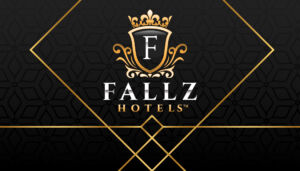Hoteliers, Here’s the Problem with Your Approach—And What You Need to Do in 2025
FALLZ HOTELS™
FALLZ HOTELS™
Your Trusted Source for Intelligent Hospitality Insights
Your Trusted Source for Intelligent Hospitality Insights
The Problem: Outdated Strategies in a Rapidly Evolving Market
The hospitality industry in 2025 is brimming with opportunities, yet many hoteliers struggle to keep pace with evolving guest expectations, technological advancements, and market disruptions. Despite the challenges posed by rising competition, global economic uncertainty, and shifting travel trends, too many hotels rely on strategies that worked a decade ago but fall flat today.
Here are the primary issues that continue to hold hoteliers back:
- Overlooking Guest Personalization:
Hotels still rely on generic services rather than tailoring experiences to individual guest preferences. This lack of personalization leads to lower guest satisfaction and fewer repeat bookings. - Resistance to Technology:
Many properties are slow to adopt cutting-edge technology such as AI-driven customer service, automated operations, and contactless solutions. This hesitation creates inefficiencies and a subpar guest experience. - Inefficient Revenue Strategies:
Outdated pricing models and a failure to diversify revenue streams leave money on the table. Hotels that fail to optimize pricing during peak seasons or capitalize on ancillary services are losing out. - Lack of Staff Training and Retention Efforts:
Labor shortages and high turnover continue to plague the industry. Many hoteliers fail to invest in proper staff training or morale-boosting initiatives, leading to inconsistent service quality. - Neglecting Sustainability:
Travelers are increasingly prioritizing eco-friendly accommodations, but some hotels lag in adopting sustainability initiatives. This negligence not only alienates a growing segment of eco-conscious guests but also misses cost-saving opportunities through energy and waste management.
What Hoteliers Need to Do in 2025
To succeed in 2025 and beyond, hoteliers must embrace change and adopt strategies that reflect the current demands of the market. Here’s what needs to happen:
1. Put the Guest First: Personalization Is Key
- Why It Matters: Today’s travelers expect unique experiences tailored to their needs and preferences. A one-size-fits-all approach no longer works.
- How to Do It:
- Leverage data analytics to understand guest behavior and preferences.
- Implement CRM systems to track and personalize guest interactions.
- Offer customizable packages based on guest demographics, such as family-oriented activities, wellness-focused stays, or business traveler perks.
2. Embrace Technology for Efficiency and Innovation
- Why It Matters: Technology isn’t a luxury—it’s a necessity for staying competitive.
- How to Do It:
- Introduce AI chatbots for 24/7 customer service.
- Enable mobile-first experiences, such as app-based bookings, digital room keys, and virtual concierge services.
- Use data-driven revenue management systems to optimize pricing dynamically.
3. Diversify Revenue Streams
- Why It Matters: Relying solely on room bookings limits potential income. Diversification protects hotels from market fluctuations.
- How to Do It:
- Expand food and beverage offerings by hosting themed dining events or culinary classes.
- Create subscription services for frequent travelers, offering perks like discounted stays or early check-ins.
- Rent out meeting spaces or host community events to maximize underutilized facilities.
4. Invest in Your Staff
- Why It Matters: Your staff are the backbone of the guest experience. Happy employees lead to happy guests.
- How to Do It:
- Provide continuous training programs focused on guest relations and problem-solving.
- Offer incentives, such as performance bonuses or wellness programs, to boost morale.
- Foster a positive workplace culture by prioritizing work-life balance and open communication.
5. Commit to Sustainability
- Why It Matters: Sustainable practices aren’t just good for the planet—they’re good for business. Eco-conscious travelers are willing to pay a premium for green accommodations.
- How to Do It:
- Adopt energy-efficient lighting, HVAC systems, and water-saving devices.
- Implement recycling and waste reduction programs.
- Partner with local suppliers to offer farm-to-table dining options, reducing your carbon footprint.
6. Enhance Your Marketing Game
- Why It Matters: Even the best hotels can go unnoticed without effective marketing.
- How to Do It:
- Use social media to showcase unique features, guest testimonials, and behind-the-scenes content.
- Collaborate with influencers and travel bloggers to expand reach.
- Prioritize SEO for your website to ensure visibility in search engine results.
The Bottom Line for 2025
Hoteliers, the time for complacency is over. The industry is moving faster than ever, and those who fail to adapt risk being left behind. By focusing on guest personalization, embracing technology, diversifying revenue, prioritizing sustainability, and investing in both staff and marketing, your hotel can thrive in the year ahead.
The future of hospitality is about innovation, adaptability, and a relentless commitment to delivering exceptional guest experiences. Make 2025 the year you transform your operations and lead the industry forward.
Stay Updated with FALLZ HOTELS™
Your Trusted Source for Intelligent Hospitality Insights

At FALLZ HOTELS™, we’re dedicated to keeping you informed about the latest developments in the dynamic global hospitality industry. As 2025 unfolds, we’ll continue to bring you expert insights, in-depth analyses, and updates on how hotels are evolving to meet the needs of hoteliers, investors, and stakeholders.
FALLZ HOTELS™ will be right here, guiding you every step of the way.


Leave a Reply